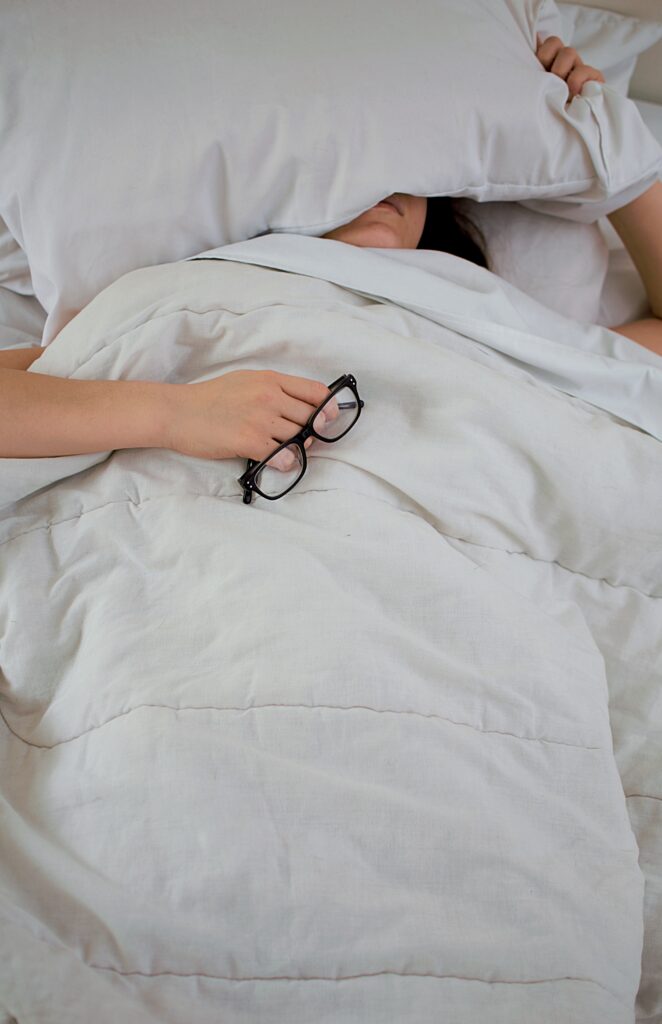Delayed Sleep Phase Syndrome…What is it?

Disclaimer: Hey there, Psych2goers! Before we start, a friendly disclaimer, this article is not meant for a professional diagnosis or treatment. If you notice you or your loved ones experienced any signs stated below, please don’t hesitate to seek professional help.
Marianne was rubbing her sleepy eyes when she heard her mom’s loud shout from downstairs. “Marianne! For goodness’ sake, it’s already 7.00 a.m., you will be running late to school again!”
The night before, she stayed up so late texting with her friends. At midnight, she already felt tired but had trouble falling asleep until it was 4 a.m. She did not have insomnia, instead she actually found it hard to go to bed before 4 a.m. 7 a.m. is the final possible time that she can get up and still arrive at school just on time for her first period class.
Several warnings had been given to her because of her being late to school, and this time, if she cannot make it to school for the first period class, she may face suspension.
Why had she stayed up so late last night texting with her friends?
What Is Delayed Sleep Phase Syndrome (DSPS)?
Delayed sleep phase syndrome (DSPS, also known as delayed sleep phase disorder or delayed sleep-wake phase disorder) is a type of circadian rhythm sleep disorder. This disorder causes a much delayed major sleep episodes in relation to the desired clock time which causes the person to struggle adjusting the sleep onset and wake-up times to school, occupational, and social activities (Takahashi, Hohjoh, & Matsuura, 2001).
In other words, a DSPS patient has a problem with internal body clock and has trouble falling asleep at a socially acceptable bedtime. It is actually wrong to associate this condition as being a “night owl”. A night owl purposely chooses to stay up late, however a person with DSPS has a delayed body clock. Contrary to a patient with DSPS, a night owl is able to adjust the sleep schedule when it is time to follow a normal routine(Nunez & Luo, 2019).
The Effects of DSPS

An article on Stanford Health Care website stated there are two difficulties that a person with DSPS generally have:
- Falling asleep, unless they go to bed very late (usually some hours after midnight) because their internal clock is sending alerting signals until late into the night
- Waking up at a “normal” time in the morning, because their internal clock is not yet producing strong alerting signals
How Do You Know If You Have DSPS?
If you notice that your social, occupational, or other areas of your life are affected due to the sleep disorder, there is a high chance that you have DPSS.
How early can this disorder develop?
According to an article on DSPS published by Stanford Health Care, it may develop in early childhood, however this condition aggravates once the person has reached adolescence. Approximately 15 percent of adolescents and adults have DSPS.
The International Classification of Sleep Disorders-Revised requires certain minimal criteria for a diagnosis of DSPS, which includes:
- Inability to initiate sleep at the desired time and difficulty awakening
- Delayed (late) timing of the habitual sleep episode
- Presence of symptoms for 1 month or more
- When constraints permit (e.g., when not working or attending classes), the patient opts for delayed timing of the major sleep episode, which is felt to be of good quality and quantity, and can awaken from this sleep episode without difficulty, and remains on this delayed sleep-wake schedule without difficulty
- 2 weeks or more of subjective sleep data (e.g., sleep-wake diary) verify the presence of the delayed, habitual sleep-wake schedule.
What Are The Possible Factors For DSPS?

While there is little clarity in the search for the exact contributors to DSPS, it is usually associated with several factors (Nunez & Luo, 2019):
- Genetics: There is a higher possibility of having DSPS if you have a close relative with similar condition. 40 percent of DSPS patients have a family history of the disorder.
- Changes after puberty: The body’s circadian rhythm of an adolescent becomes longer, leading to later sleep and wake times. Besides that, they also have a propensity to become more social and shoulder more responsibilities.
- Psychological and neurological disorders: DSPS is linked to conditions like:
-depression
-anxiety
-attention deficit hyperactivity disorder
-obsessive-compulsive disorder
- Chronic insomnia: DSPS affects 10 percent of people with chronic insomnia.
- Poor sleeping habits: Inadequate exposure to morning sunlight or excessive exposure to light at night may aggravate DSPS symptoms.
Final Thoughts
Have you ever heard of an early folk wisdom, “…Early to bed, and early to rise…”?
This wisdom however, does not apply to a person with DSPS. Unfortunately, an adolescent with DSPS would not grow out of it.
Therefore, it is imperative to seek appropriate treatment if you notice yourself or your loved ones display signs of DSPS. With the right help, you can get your sleep back on track.
REFERENCES
Delayed Sleep Phase Syndrome (DSPS). Stanford Health Care (SHC) – Stanford Medical Center. (2017, September 12). https://stanfordhealthcare.org/medical-conditions/sleep/delayed-sleep-phase-syndrome.html.
Luo, E. K., & Nunez, K. (2019, March 26). What Is Delayed Sleep Phase Syndrome? healthline. https://www.healthline.com/health/sleep-deprivation/delayed-sleep-phase-syndrome.
Takahashi, Y., Hohjoh, H., & Matsuura, K. (2001, December 25). Predisposing factors in delayed sleep phase syndrome. Wiley Online Library. https://onlinelibrary.wiley.com/doi/full/10.1046/j.1440-1819.2000.00713.x.
The International Classification of Sleep Disorders-Revised:
Diagnostic and Coding Manual. Rochester, MN: American Sleep
Disorders Association; 1997
Wyatt, J. K. (2004). Delayed Sleep Phase Syndrome: Pathophysiology and Treatment Options. In SLEEP (6th ed., Vol. 27, pp. 1195–1203). essay, Sleep Disorders Service and Research Center, Rush University Medical Center, Chicago, IL.






Responses